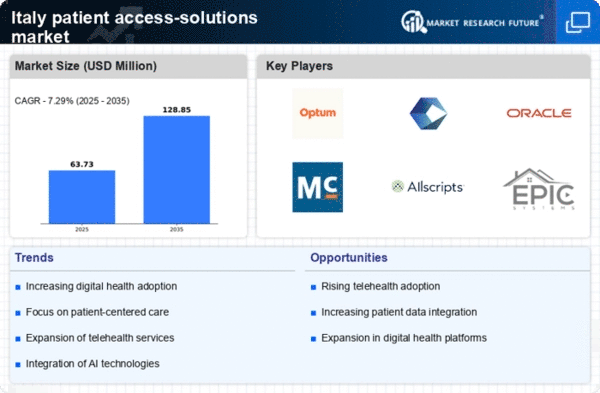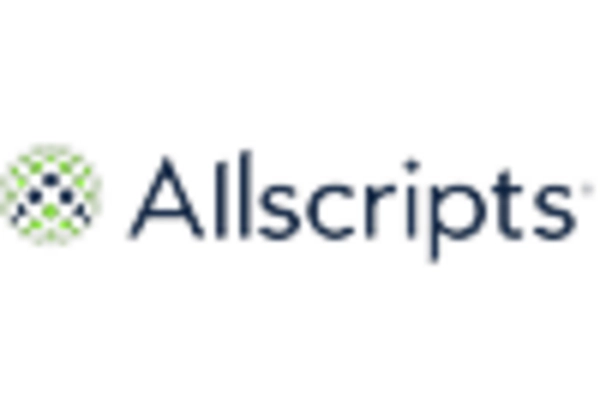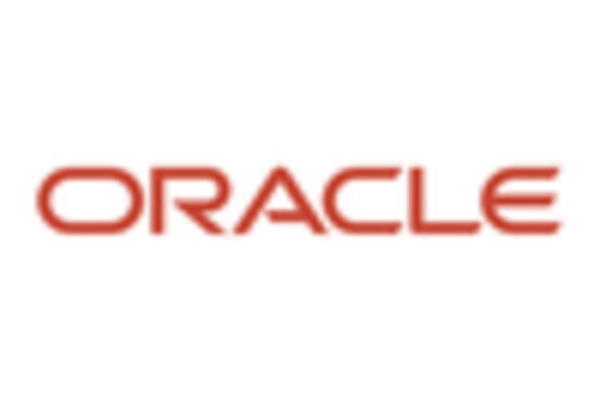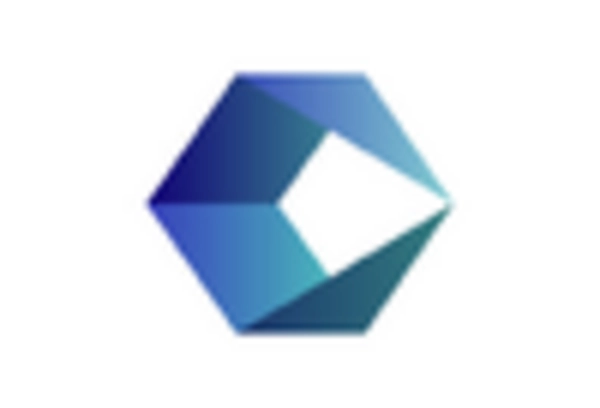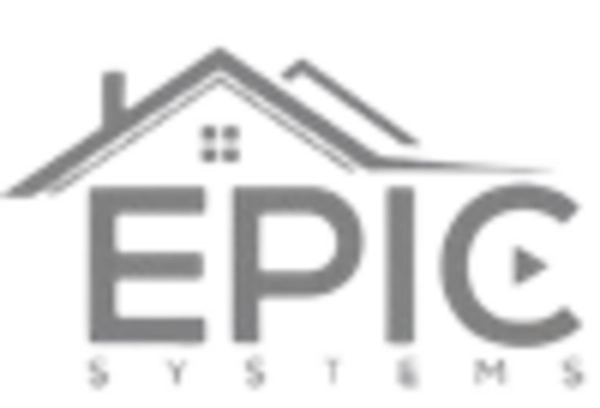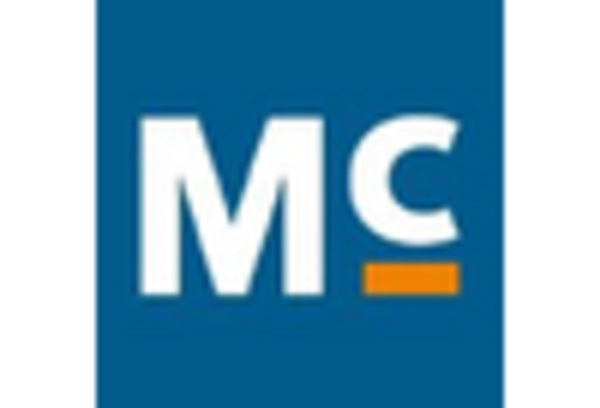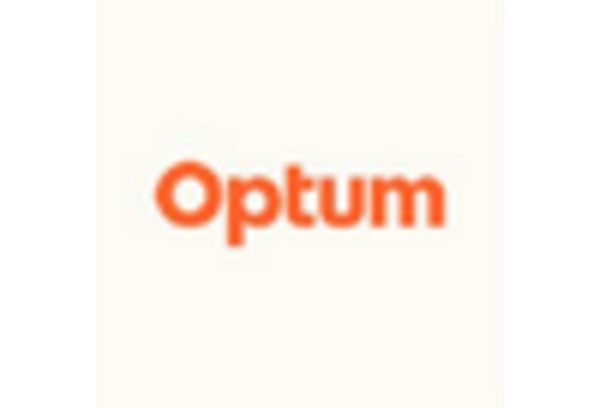Increased Focus on Health Equity
The patient access-solutions market is significantly impacted by the growing emphasis on health equity in Italy. There is a concerted effort to ensure that all individuals, regardless of socioeconomic status, have access to quality healthcare services. This focus on equity is driving the development of patient access solutions that address barriers such as transportation, language, and financial constraints. Recent studies indicate that nearly 20% of the population faces challenges in accessing healthcare, highlighting the need for targeted solutions. By implementing strategies that promote health equity, healthcare providers can enhance access to services for underserved populations, thereby expanding their reach and improving overall health outcomes. This commitment to equitable access is likely to shape the future landscape of the patient access-solutions market.
Shift Towards Value-Based Care Models
The patient access-solutions market is increasingly influenced by the shift towards value-based care models in Italy. This approach emphasizes the quality of care provided rather than the volume of services rendered, prompting healthcare providers to adopt patient access solutions that enhance care coordination and patient outcomes. As value-based care becomes more prevalent, there is a growing need for solutions that facilitate seamless communication between patients and providers, ensuring that care is both efficient and effective. Data suggests that organizations implementing value-based care models have seen a 15% improvement in patient outcomes, which underscores the importance of access solutions in this context. This transition towards value-based care is likely to reshape the patient access-solutions market, driving demand for innovative solutions that align with these new care paradigms.
Technological Advancements in Healthcare
The patient access-solutions market is experiencing a notable transformation due to rapid technological advancements. Innovations such as telemedicine, electronic health records (EHR), and mobile health applications are enhancing patient engagement and streamlining access to healthcare services. In Italy, the integration of these technologies has led to a 30% increase in patient satisfaction, as individuals can now access their health information and communicate with healthcare providers more efficiently. Furthermore, the adoption of artificial intelligence in patient access solutions is expected to improve diagnostic accuracy and reduce wait times, thereby fostering a more efficient healthcare system. This technological evolution not only benefits patients but also healthcare providers, as it allows for better resource management and improved operational efficiency in the patient access-solutions market.
Rising Demand for Personalized Healthcare
The patient access-solutions market is increasingly influenced by the rising demand for personalized healthcare services. Patients in Italy are seeking tailored solutions that cater to their unique health needs and preferences. This shift towards personalization is prompting healthcare providers to adopt patient access solutions that facilitate customized care plans and enhance patient-provider communication. According to recent data, approximately 65% of patients express a preference for personalized treatment options, which has led to a surge in the development of innovative access solutions. As a result, healthcare organizations are investing in technologies that enable personalized care, thereby driving growth in the patient access-solutions market. This trend not only improves patient outcomes but also fosters loyalty and trust between patients and healthcare providers.
Growing Regulatory Support for Access Solutions
The patient access-solutions market is benefiting from increasing regulatory support aimed at enhancing healthcare access in Italy. Government initiatives and policies are being introduced to promote the adoption of patient access solutions, ensuring that healthcare providers comply with standards that facilitate patient engagement and access to services. For instance, recent regulations have mandated the integration of digital health technologies into healthcare systems, which is expected to boost the market by approximately 25% over the next five years. This regulatory environment encourages innovation and investment in patient access solutions, as healthcare organizations strive to meet compliance requirements while improving patient experiences. Consequently, the alignment of regulatory frameworks with market needs is likely to drive growth in the patient access-solutions market.


